Tackling healthcare challenges by leveraging AI-enabled advancements and collaboration in radiology
At RSNA 2024, Philips showcased groundbreaking innovations in AI-enabled diagnostic and treatment imaging, emphasizing the company's commitment to precision healthcare and operational efficiency. These advancements reflect Philips' mission to empower clinicians with cutting-edge tools, reduce administrative burdens, and deliver exceptional care to an ever-growing patient population. Healthcare providers in the Asia Pacific (APAC) region have expressed excitement about integrating AI-driven technologies, recognizing the transformative potential for enhancing care delivery.
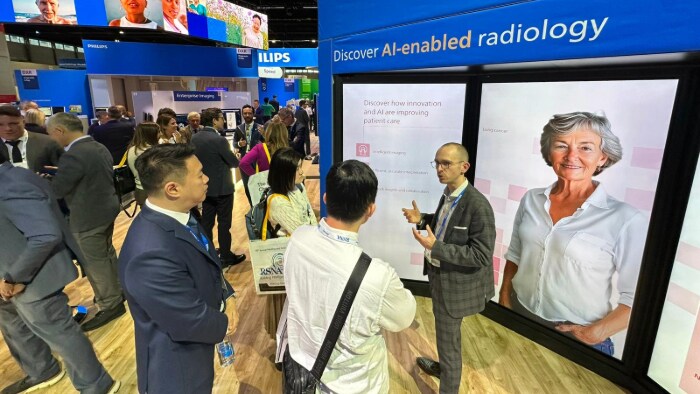
Tackling radiology's pressing challenges with AI in APAC and beyond
Radiologists globally face surging demand for imaging studies, driven by a 40% increase in complex disease cases in cardiology and neurology and a 60% rise in imaging data [1]. Simultaneously, the sector grapples with workforce shortages and escalating financial pressures, as highlighted in the Philips Future Health Index 2024 Report, which found 99% of radiology leaders struggling with staffing and nearly half reporting burnout symptoms. Similarly in APAC, about 3 out of 4 healthcare leaders (71%) are concerned about staff shortages resulting in delays in care for patients [2].
Philips’ AI-powered solutions address these challenges head-on. By combining advanced imaging systems with cloud-based informatics, Philips enables seamless integration across workflows, enhancing efficiency and providing radiologists with actionable insights. Customers in APAC are particularly optimistic, viewing these innovations as essential for meeting regional healthcare demands while optimizing resource utilization.
Healthcare leaders in APAC are embracing Philips' AI advancements with enthusiasm, recognizing their potential to revolutionize imaging and diagnostics across the region. The scalability and adaptability of these solutions align perfectly with APAC's varied healthcare landscapes, from metropolitan hospitals to rural clinics. “As patient volumes grow and disease complexity intensifies, Philips’ innovations offer a pathway to enhanced efficiency, better care delivery, and improved patient outcomes,” highlighted Mark Burby, Vice President, Health Systems, Philips APAC. “There was strong traction with customers on our long-term strategy and commitment to innovation and partnership across Asia Pacific.”
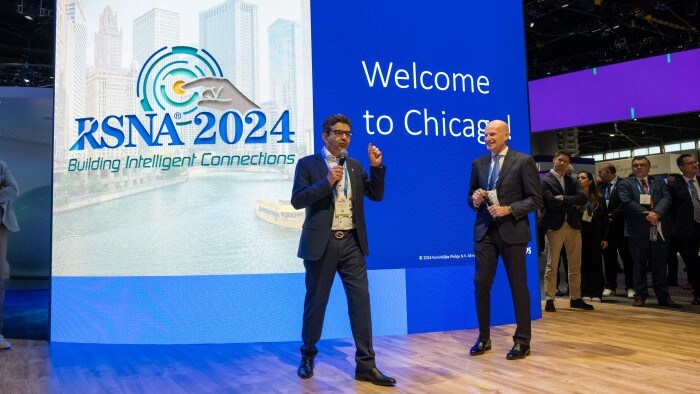
As patient volumes grow and disease complexity intensifies, Philips’ innovations offer a pathway to enhanced efficiency, better care delivery, and improved patient outcomes
Mark Burby
Vice President, Health Systems, Philips APAC
Game-changing MRI technology
One of the standout innovations at RSNA 2024 was Philips’ next generation BlueSeal MRI system [3]. As the industry’s first wide-bore, high-performance MRI with AI-driven automated reporting for neurology and oncology [4], this system redefines diagnostic capabilities. Its compact design reduces installation costs and expands access to precision diagnosis in underserved areas—a vital advancement for APAC's diverse and often remote patient populations. This innovation not only delivers top-tier imaging but also demonstrates a commitment to sustainability, aligning with the global push for eco-conscious healthcare solutions.
AI-enabled CT innovations
Philips’ innovative CT system features AI-driven smart workflow, yielding benefits of streamlined workflows and enhancing diagnostic precision for complex exams such as cardiac imaging. This advancement supports radiologists in delivering faster, more accurate diagnoses, reducing patient exposure to radiation, and improving overall care experiences—key factors driving enthusiasm among healthcare providers in APAC.
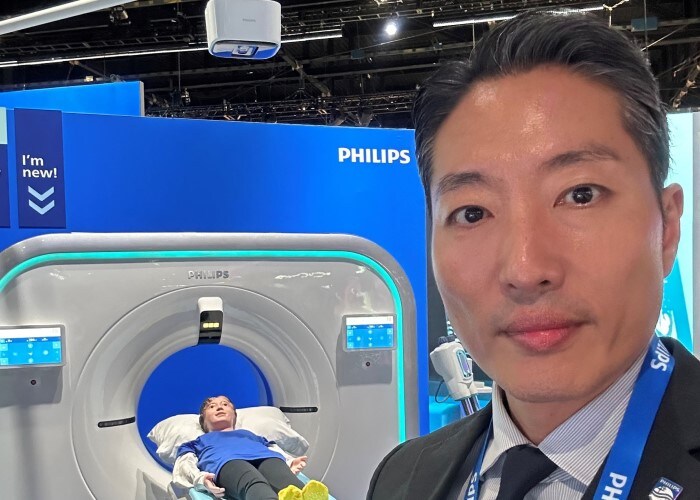
AI and connectivity transform radiology access in APAC
The introduction of Philips' Radiology Operations Command Center (ROCC), featuring real-time remote scanning and protocol management capabilities, exemplifies how AI and connectivity can optimize radiology operations. By enabling collaboration between experts and technologists regardless of location, this solution increases imaging accessibility for traditionally underserved populations—a critical benefit in the APAC context.
Philips’ strategic collaboration with Amazon Web Services (AWS) has elevated its healthcare informatics offerings. By integrating diagnostics across radiology, pathology, and cardiology on the cloud, Philips delivers scalable, generative AI applications tailored for clinical workflows. This collaboration will empower clinicians with enhanced data management tools, improving decision-making while addressing logistical challenges faced by many healthcare systems.
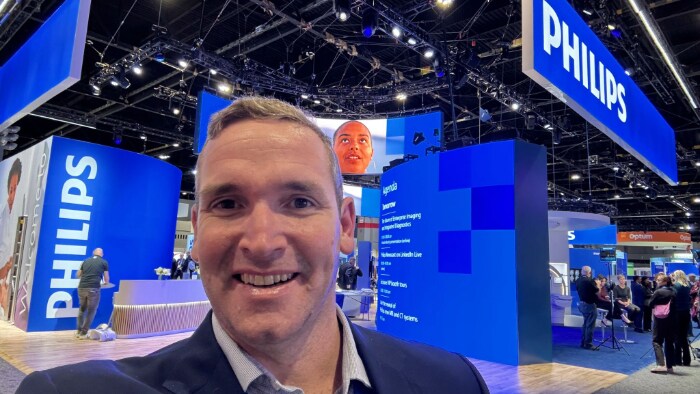
Partnerships enabling early interventions with game changing technologies
The adoption of new technology by healthcare providers and continuous advancement of their skills and knowledge will also go a long way in optimizing work efficiency and focus on patients. For that, the healthcare industry must remain resolved in the mission to improve access and utilization of evolving health technology, through education and engagements, and continuous exchange of knowledge and best practices. To that front, Philips remains committed in helping other like-minded healthcare organisations in realizing this vision through education, an innovative portfolio and overall becoming a trusted partner to navigate the health journey.
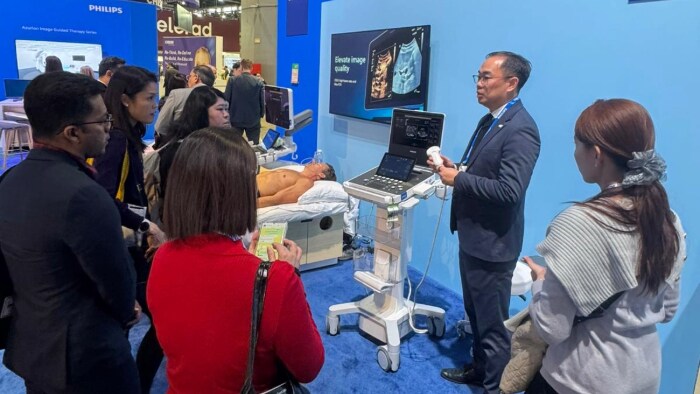
Towards better care for more people
At RSNA 2024, Philips reaffirmed its leadership in leveraging AI and informatics to address the pressing challenges of modern radiology. From helium-free MRI systems to AI-driven CT scanners to collaborations and partnerships, Philips is transforming healthcare delivery. “The excitement among healthcare providers – particularly in APAC – is a testament to the widespread anticipation for these technologies to drive progress in diagnostics and treatment,” said Jasper Westerink, Representative Director of Philips Japan, and Acting Managing Director of Philips APAC. “By pushing the boundaries of what is possible, Philips continues to bring better care to more people worldwide.”
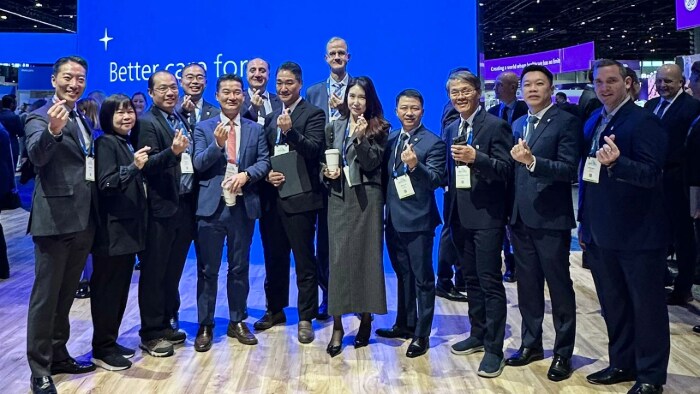
By pushing the boundaries of what is possible, Philips continues to bring better care to more people worldwide
Jasper Westerink
Representative Director of Philips Japan, and Acting Managing Director of Philips APAC
For further information regarding Philips’ innovations, please click here.
References [1] 3 key market trends source: The Burden of Chronic Disease (Karen Hacker); The healthcare data explosion (RBC Capital Markets); Radiologist burnout (Catalina imaging) [2] Findings from Philips Future Health Index 2024: APAC Report [3] Helium-free operations. 7 liters of helium is permanently enclosed in the cryogenic circuit. [4] BlueSeal XE/SE and Smart Reading are not yet CE marked, not cleared in all countries, and not yet available for delivery in any country. Please consult your Philips contact person for further information.
Share on social media
Topics
Contact

Jane Yeo Head of Communications & Brand, APAC
You are about to visit a Philips global content page
Continue









